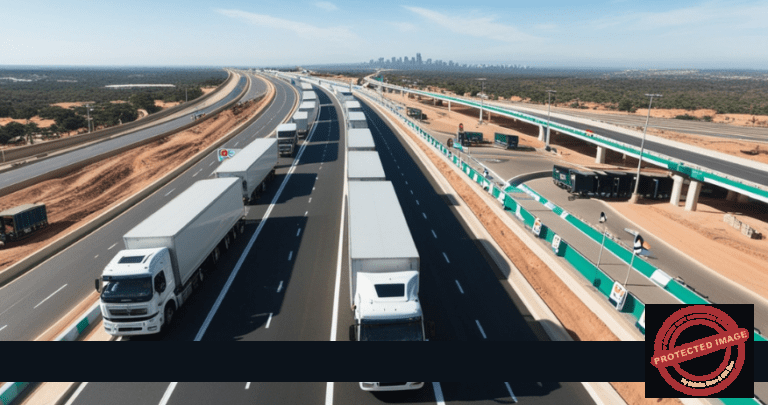Are you looking for a tax job? The best qualifications of a tax officer mesmerise many people. Meet Lucy. From a young age, Lucy has loved numbers and solving puzzles. She was that kid who enjoyed math class and loved helping her friends with their homework.
Affiliate Disclosure: This post may contain affiliate links – I may receive a small commission if you purchase through links, at no extra cost to you. Read HERE.
When Lucy grew up, she wanted a job where she would use her math skills and make a difference. She found her calling as a tax officer. If you are like Lucy and want to know the top qualifications of a tax officer, keep reading!
7 Qualifications for a Tax Job
Educational Background in Accounting or Finance
Lucy knew an excellent education was the first step to becoming a tax officer. She worked hard and qualified to attend college, where she majored in accounting. Lucy learned about money, finance, taxes, and business during her studies. She discovered how businesses keep track of their finances using budgets and how taxes play a crucial role in companies and the economy.
A degree in accounting, finance, business administration, or even economics is a great start for anyone interested in tax. These programs teach the basics of financial management, tax preparation, tax auditing, and general business principles. For Lucy, her accounting degree was the foundation she needed to build her career in tax.
Professional Certifications
Lucy wanted to be the best tax officer the tax commissioner had ever employed. So, she got certified. After finishing her degree, she immediately enrolled in her Certified Public Accountant (CPA) studies. Every day, she studied hard, and after a few years, she passed the exams and became a Certified Public Accountant (CPA). This certification showed that she deeply understood accounting principles, tax rules, regulations, and laws.
Some tax officers might become Chartered Accountants (CA) or Certified Tax Advisors (CTA), while others will not. The tax field respects accounting certifications and often requires them for advanced positions. However, since taxpayers are in every field of the economy, other certifications are also necessary, for example, in land economics, lawyers, etc. The certifications show you are good at what you do and have met high professional standards.
Knowledge of Tax Laws and Regulations
One of the most essential qualifications of a tax officer is a thorough knowledge of tax rules, regulations, and laws. Lucy stayed updated because tax laws can be complicated and change often. She read a lot of books and tax blogs, attended tax workshops and seminars, followed the latest news on tax rules, regulations, and laws, and watched many YouTube channels.
A good tax officer knows the tax rules, regulations, and laws and can explain them to others. Staying informed is crucial, whether it is about local, national, or international tax laws. Lucy’s dedication to keeping up with changes in tax rules, regulations, and laws made her a valuable resource for her employer and the many taxpayers she served.
Analytical and Problem-Solving Skills
One day, Lucy was reviewing a taxpayer’s tax returns and found a mistake. The numbers did not add up, and something seemed off. Using her analytical skills, Lucy dug deeper into the documents and found the problem. She then used her problem-solving skills to fix it, ensuring the taxpayer did not pay extra taxes in fines, penalties, and interest.
Tax officers must be able to analyse complex financial documents carefully and spot discrepancies. They must think critically and solve problems quickly. Lucy’s ability to identify and resolve issues made her an excellent tax officer.
Attention to Detail
Lucy knew that even a tiny mistake in tax work could cause significant problems. That was why she always double-checked her work. She made sure every number was correct. Lucy also ensured taxpayers completed every form or template provided by the tax commissioner correctly. Being detail-oriented is very important for any tax officer.
Mistakes in tax returns can lead to fines, penalties, interest, legal trouble, such as prosecution or jail time, or even damage to a taxpayer’s reputation. Lucy’s meticulous attention to detail helped her avoid these issues and maintain her reputation with taxpayers. It also gained her taxpayers’ trust.
Communication and Interpersonal Skills
Part of Lucy’s job was explaining tax rules to people. She often met with taxpayers who needed or wanted clarification about their taxes. Lucy used her communication skills to explain things clearly and patiently. She ensured her clients understood what they needed to do and felt comfortable asking questions.
Excellent communication skills are essential for tax officers. They help them explain complex tax rules, regulations, and laws in a way that is easy for taxpayers to understand. Interpersonal skills are also necessary because they help tax officers build relationships with taxpayers and colleagues. Lucy’s communication ability made her a trusted advisor to her friends, colleagues, and taxpayers.
Experience in Taxation
Before becoming a tax officer, Lucy interned at a tax firm. She learned a lot from her mentors and gained invaluable practical experience. Lucy learned how to prepare tax returns, handle audits, give tax advice, and even represent taxpayers in the tax commissioner’s office.
Experience is key. Many tax officers start with interns or entry-level jobs to gain experience before applying to the tax commissioner’s office. On-the-job training helps potential tax officers apply what they have learned in school as interns and prepares them for the challenges of the tax job. Lucy’s experiences helped her develop her skills to succeed as a tax officer.
Conclusion on Qualifications for a Tax Job
Lucy’s journey to becoming a tax officer shows that anyone with the right qualifications can succeed. She studied hard, got certified, stayed informed, and gained experience. If you follow in Lucy’s footsteps, you, too, can have a rewarding career as a tax officer.
Remember, the top qualifications of a tax officer are within your reach! By focusing on education, certification, knowledge, skills, and experience, you can become a successful tax officer like Lucy. So, if you love numbers and solving puzzles, start your journey today!
Thank you for reading the post. Let us know your thoughts in the comments.
Dr Wakaguyu
taxkenya@gmail.com



